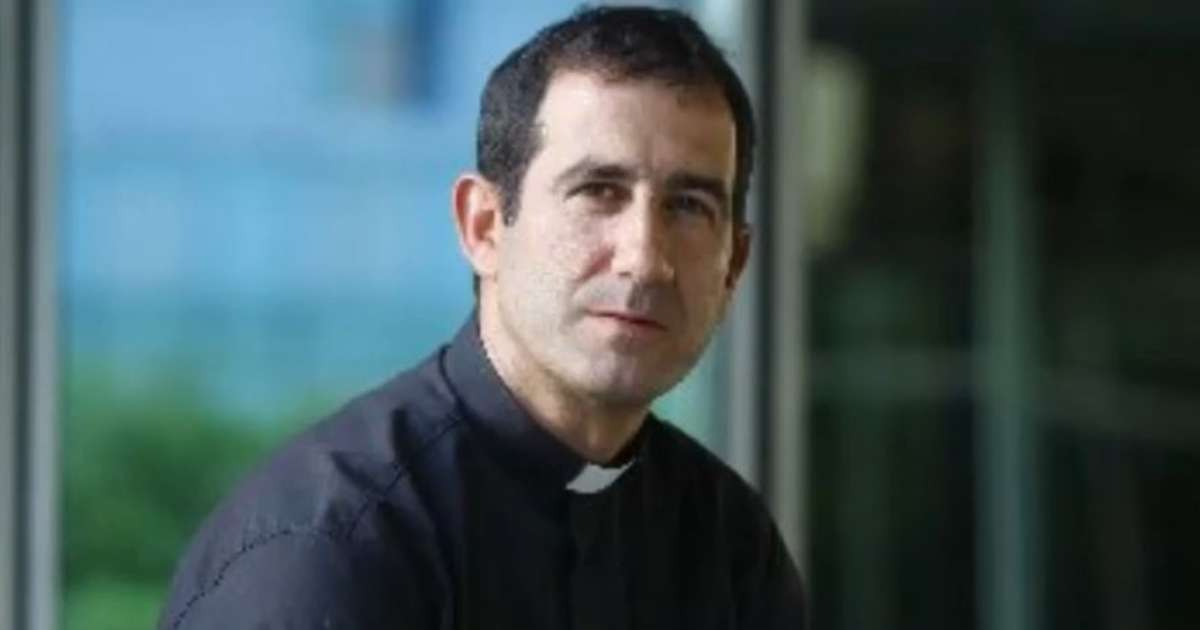
Priest Alberto Reyes, parish priest of Camagüey, sent a message to the families of political prisoners in Cuba asking them not to be ashamed of them.
Three years after the protests on July 11, Reyes, a strong critic of the regime, recalled that prison is tough and that as time passes, prisoners wonder if it was worth it to have taken to the streets to demand a freedom that has not arrived.
In a post published on his Facebook profile, the priest pointed out that for them it is important that their family members, without denying the pain, are able to thank them for what they did and show how proud they are of them. An opposite attitude would be something "sad and devastating."
Father Reyes constantly prays so that the mistreatment suffered by Cuban prisoners does not kill their smiles or consume their hope, because the victory of the regime is not to imprison those who question it, but to fill them with hatred and resentment forever.
Days ago, he advised them to pray to God, to speak to Him about their pain, anger, and fear. But above all, he warned them to pray for the light of their souls, so that their time in prison does not corrupt them.
Next, CiberCuba is sharing the full text of the publication.
I have been thinking... (LXXVII) by Alberto Reyes Pías
I have been thinking about what to say to the families of our political prisoners II
What else would I say to the relatives of political prisoners?
I would tell them not to be ashamed of themselves, and not to shame them either.
There is a story about the first persecutions of the Christians. I don't know if it is a real story, or if someone wrote it to encourage their own, but either way, I think it is inspiring.
It is the story of a Roman soldier who converted to Christianity, along with his wife and teenage son, practicing Christianity in secret due to the persecution of Emperor Diocletian. They were discovered, the father and son were faced off, and the father was told that if he did not renounce his Christian faith, his son would be beheaded in front of him. The story goes that upon hearing this, the son looked at his father and said, 'Dad, do not shame me!'. They died, first the son, then the wife, and finally the father.
Being a political prisoner is a struggle between life and death. Every day they lose out: under the sun, the freedom to take steps, the embraces of those who love them, their right to build their own life. And every day they have the chance to be reborn: to hope, to the best of themselves, to the healthy pride of having been condemned for doing what is right.
However, being born again is not easy, prison is harsh, especially in our land. Prison seeks to turn you into a vulnerable being, while the days pass slowly and, apparently, nothing changes, and the freedom you fought for does not come, and the mind hammers the hours with its hateful questions: 'Was it worth it?', 'Did I really do the right thing?'.
How important it is for those who are imprisoned that their loved ones, without denying the pain, are able to tell them, time and time again: 'Thank you, thank you for what you did, thank you for that day when you cried out for freedom for your people!' How important it is for those who are imprisoned to hear, in some way: 'I am proud of you!'
How sad and devastating it would be the opposite. How destructive it would be to let the pain hijack the gaze and make you say, "You shouldn't have done it."
How painful it would be for those who are in prison to be treated with the pity that looks at you as a foolish idealist, to whom, like an irresponsible child, can only be asked to 'behave well', to 'not get into more trouble' until they can get out of jail and learn to stay quiet or manage to leave the country. Choosing to defend a nation's freedom has never been and will never be easy, because it implies, from the start, challenging power. Defending freedom will always have prices, as the act of keeping silent, submitting, and accepting passively slavery does.
Yes, we need parents, mothers, children, husbands, wives, who tell their imprisoned relatives: 'You cannot choose the fate of your steps, but you can lift your head. Keep looking forward and do not embarrass me.'
And we need those who are in prison to be able to say to their loved ones: "Feel the pain, but don't ask me to give up, don't ask me to abandon. Cry if you want, but don't shame me."
What do you think?
COMMENTFiled under: